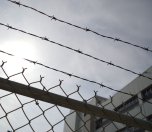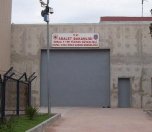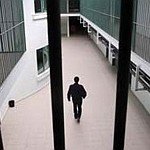Click to read the article in Turkish
The Council of Europe's Committee for the Prevention of Torture and Inhuman or Degrading Treatment or Punishment (CPT) has published reports on its 2017 periodic visit and 2019 ad hoc visit to Turkey.
In the visits, the CPT delegation examined the treatment and conditions of people detained by the police and gendarmerie by interviewing hundreds of people who were held in custody, including on suspicion of "terrorism-related" offenses, in İstanbul, Ankara, the capital, and Diyarbakır, the largest Kurdish-majority province of the country.
Also, the delegation visited prisons, which it said were "severely overcrowded." The İmralı Type-F Prison, where the Kurdistan Workers' Party (PKK) leader Abdullah Öcalan is held, was among the prisons visited by the CPT delegation in 2019.
During the visits, the condition of ill prisoners, prisoners with psychological problems and foreign citizens held in detention centers were also examined.
Here are highlights from the reports:
Ill-treatment
In both visits, the delegation received a "considerable number of allegations of excessive use of force and/or physical ill-treatment by police/gendarmerie officers" from people who had recently been taken into custody, including women and children.
These allegations mainly consisted of slaps, kicks, punches (including to the head and/or face) and truncheon blows after the persons concerned had been handcuffed or otherwise brought under control, it said.
Complaints regarding ill-treatment were relatively fewer in the second visit, the CPT noted.
"The Committee stresses once again the need for more decisive action by all
relevant authorities in order to combat the phenomenon of police ill-treatment in Turkey and reiterates its recommendation that a clear and firm message of "zero tolerance" of ill-treatment be delivered to all law enforcement officials, from the highest political level, namely the President of the Republic," it said.
Overcrowding in prisons
"Notwithstanding the expansion of the prison estate and greater use of conditional release and alternative non-custodial measures, the problem of prison overcrowding remained acute, and the steady increase in the size of the prison population already observed in the mid-2000s continued.
"With the exception of Diyarbakır Juvenile Prison, the official capacities of all the establishments visited were being greatly exceeded at the time of the visit. Consequently, a large number of inmates in these prisons did not have their own bed and had to sleep on mattresses placed on the floor.
"Moreover, in some living units, prisoners were even obliged to share mattresses, as no floor space was left for additional mattresses.
"The CPT recalls that constructing new prisons is not likely, in itself, to provide a lasting solution to the problem of overcrowding.
"The Committee once again calls upon the Turkish authorities to take decisive action to curb prison population inflation and to eradicate prison overcrowding, in the light of the remarks made in the visit report and relevant recommendations of the Committee of Ministers of the Council of Europe."
The situation at İmralı Prison
"The CPT calls upon the Turkish authorities to take steps without further delay to ensure that all prisoners held at Imralı Prison are allowed to associate together during daily outdoor exercise, as well as during all other out-of-cell activities.
"Further, the Committee reiterates that the underlying concept of the detention regime of persons sentenced to aggravated life imprisonment is fundamentally flawed. It once again calls upon the Turkish authorities to carry out a complete overhaul of the detention regime applied to prisoners sentenced to aggravated life imprisonment in Turkish prisons.
"The issue of contact with the outside world of prisoners held at Imralı Prison has been the subject of a long-standing intense dialogue between the CPT and the Turkish authorities, given that no visits by lawyers had been granted since July 2011 and that hardly any visits by family members had taken place since October 2014.
"The situation was further exacerbated by the fact that, following the military coup attempt of 15 July 2016, a total ban on contacts with the outside world (including correspondence) was imposed on all prisoners, which resulted in a type of incommunicado imprisonment.
"As repeatedly stressed by the CPT in its dialogue with the Turkish authorities, such a state of affairs is not acceptable and clearly contravenes various relevant international human rights instruments and standards." (AS/VK)




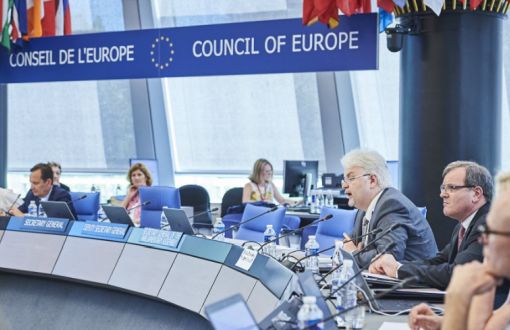

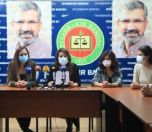

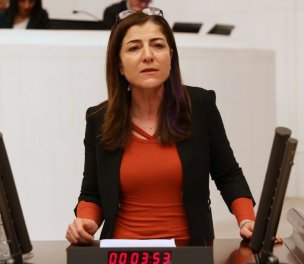
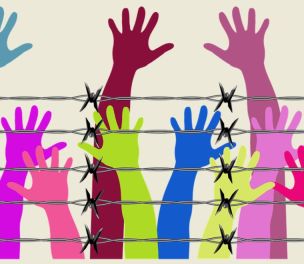
as.jpg)

